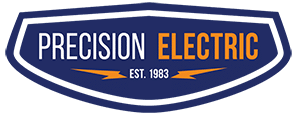FAQ :: VFDs | Should I Use An Inverted Rated Motor On VFD Applications?
Many electricians applyVariable Frequency Drives (VFDs)toAC Motors that are not inverter rated. Manyare not even aware that inverter rated motors exist.
Inverter rated motors are not required for inverter applications, however, when aVFD is applied to an inverter rated motor, the inverter rated motor has less chance of premature winding failure. Inverter rated motors have unique windings designed for voltage spikes up to approximately 1500 Volts.
Variable Frequency Drives (VFDs) create artificial sine waves which allow an AC Motor to function; normal AC Motor windings are designed for voltage up to around 600 volts. When these spikes exceed the maximum, the winding insulation starts to break down and eventually will burn up. Inverter rated motors are optimized with higher rated insulated (pulse-shielded) copper windings.
These type of windings can handle voltage spikes up to 1500 volts and higher beforethe insulation will begin to break down. Inverter rated motors also have tighter bearing air gaps than normalAC Motors. Thesetighter air gaps are designed to prevent voltage buildup in the proximity of bearing housings which can cause bearing failure.
The greater the distance the motor is from the drive the more profound the effects of inverter generated voltage spikes. When the wire from an inverter to the motor is 50 ft or longer, an Inverter rated motor should always be applied. Always chose an inverter rated motor on new applications.
Operating a Non-Inverter rated motor with an inverter will void the warranty. When the warranty claim is evaluatedby a qualifiedservice shop and/or manufacturer, they will determine the cause of failure to be Operating of a Non-Inverter rated motor with an Inverter.
Consult with a professional prior to making a decision on what type of motor to use in yourVFD application. Many customers tend to use an existingAC motor for the VFD application if the motor is already available, and replace itwith an inverter-rated motor when the original motor fails. There is some risk in this practice should the failed motor damage your new inverter.
The general lifespan of anAC Motor is dependant on several factors such as:
- Environment
- Routine Maintenance
- Using the correct type of motor andVFD for application.
Many electricians today apply Variable Frequency Drives (VFDs) for numerous reasons on AC Motor applications. One advantage of using aVFD is to extend the lifespan of anAC Motor.VFDs allow soft-start which in turn creates less wear and tear on a motor, however, if the motor being applied is non inverter rated, some of these benefits may not apply.
This does not mean you should only use aVFD on inverter rated motor only, this just means you have overall greater benefits on inverter motors than basicAC motors.





